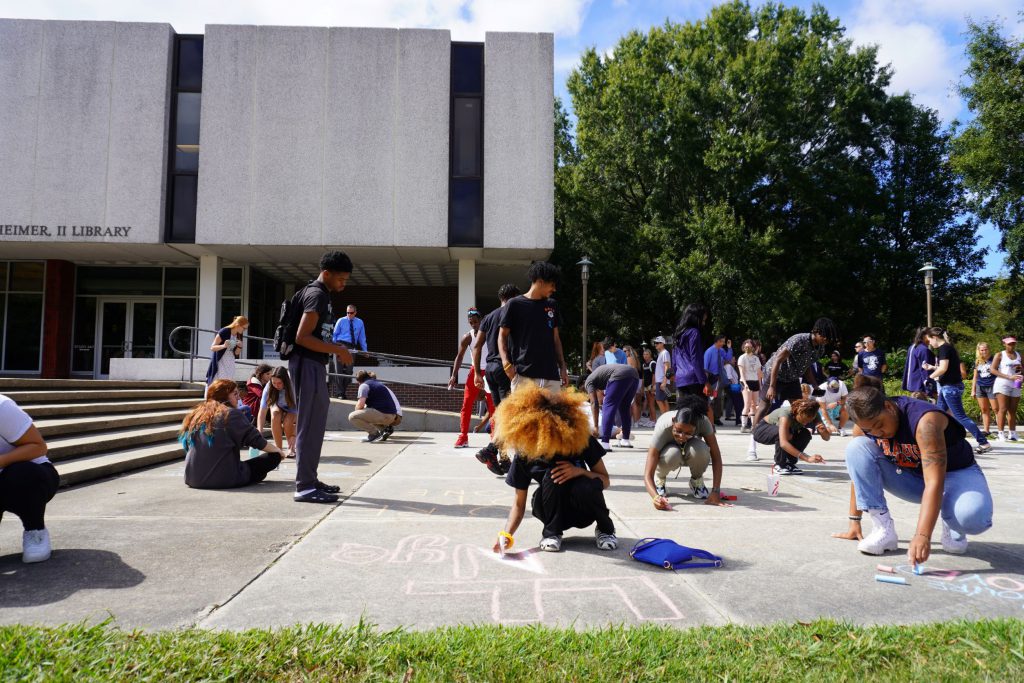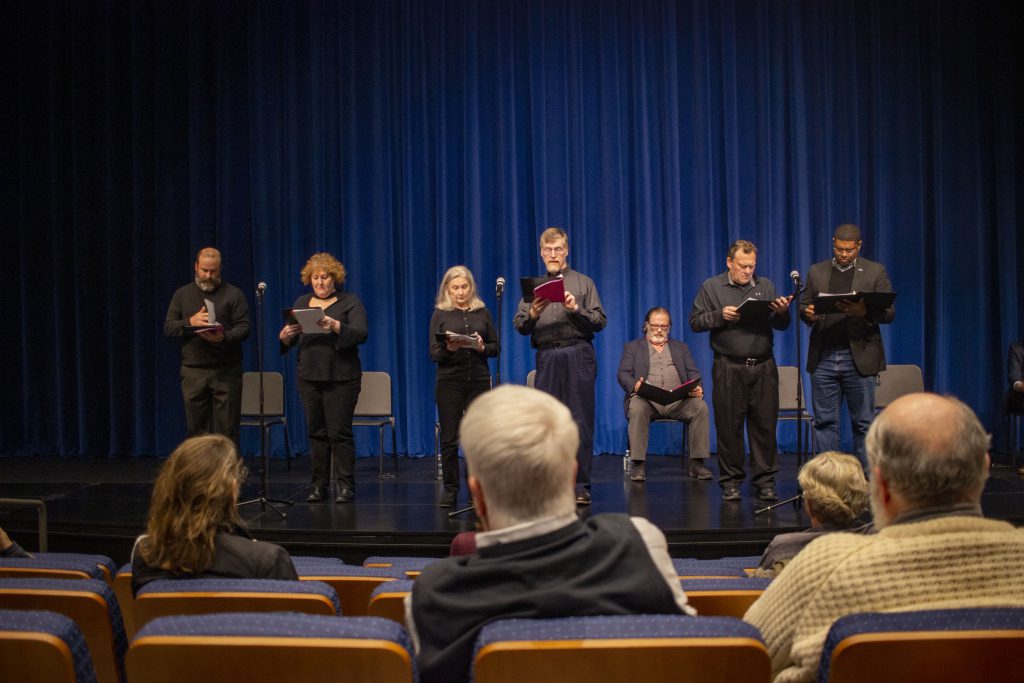Featured Image: Professor Synnika Lofton performs a poem in front of a group of students. Synnika Lofton|Courtesy
A tall man stands in front of a classroom. He delivers lines impeccably in a constant rhythm. The entire class is silent. A man is playing drums next to him, accenting the poem without drowning it out, despite the drums echoing off the walls.
The poet is named Synnika Lofton and his percussion accompanist is Greg Lee. The two met at an open mic around 2006— neither of them are certain quite how long it’s been.
Lofton said that when he was studying, he got really into the beat poetry of the 50s and 60s, and later into the Black Arts Movement, which featured a lot of rhythmic poetry.
“At the open mic we were at, when Greg said, ‘Do you mind if I play drums,’ I said, ‘Not at all,’” Lofton said.
Lee said that he had been playing drums since ‘97, but the open mic was the first time he had ever tried beat poetry. What he loved about it was the connection between the two mediums. That connection is something he finds in other artforms as well.
“When I play for dance, it’s the joy of playing for its own sake, but also seeing how my playing informs how someone moves, being able to inspire an artistic reaction from another artist in another medium,” Lee said.
They’ve been performing together ever since.
The two have performed everywhere— from coffee houses and libraries to concerts and festivals full of people. One of their most recent performances was at the Black England event in Chesapeake for an Old Dominion University audience.
Lofton writes a poem every day, about whatever is on his mind. During the pandemic, he had a mailing list where he would send out poems every month to people who were subscribed. Lofton has also published over 90 books.
“I’m able to use poetry like a vehicle to talk about all the topics that I love to talk about, that I’m passionate about,” Lofton said.
One of the main topics that he loves to talk about is social justice. He has written poems and books regarding the past, and more importantly, present treatment of minorities in America. Prominently displayed on his forearm is a tattoo of the year 1619— the year slaves were first brought to the Americas.
“It feels like I’m living on the edge of every single poem I’m writing,” Lofton said. His poems are often short and cut to the chase.
In addition to writing poetry, Lofton teaches classes at several universities and organizations. Currently, he teaches at Chesapeake Academy, Norfolk State University and the Muse Writing Center, a nonprofit literary center.
This fall semester that list also includes VWU, where he teaches Introduction to Poetry.
Lofton said that he received his job offer from VWU this past summer, after learning about the opening through a colleague at the Muse Writing Center.
“He was like, ‘Wesleyan is looking for someone to teach Intro to Poetry,’ and I was like, ‘I’m a poet,’” Lofton said.
Lofton’s classroom is fairly small, but every Thursday it’s filled with recitations of poetry. On some Thursdays, Lee comes in and plays for the class. One of the activities Lofton has people do is listen to a rhythm Lee comes up with on the spot and then write a poem about whatever that beat reminded them of.
Lofton wants his class at Virginia Wesleyan University to publish a book of poetry that they have written. He is letting the class pick the title for the poetry book. The goal is to combine the best work of the students from each of the weekly prompts.
Lofton’s students have mixed feelings about having their work published, but he is hopeful that by the end of the semester enough will come around to have a book published.
A book is a different story from the professor himself. Even though they aren’t all fans of publishing their work, most of the students enjoy the class and love the professor.
“It’s a chance for me to express myself without any other input, and I don’t feel judged in this space,” Destiny Vaughn, a freshman at VWU, said. They said that Lofton led an inclusive class, something that they hadn’t had in high school.
“I feel like I couldn’t pick a better teacher for the class,” Vaughn said.
By Victoria Haneline
vfhaneline1@vwu.edu



